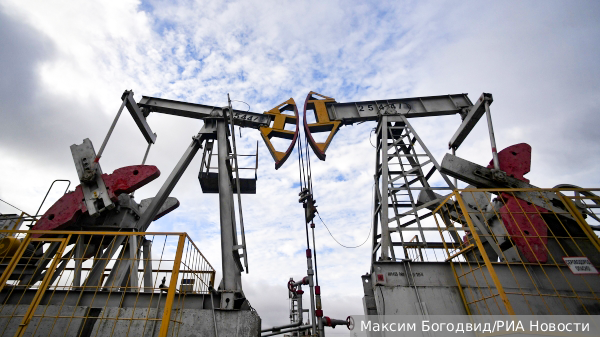
The share of oil and gas revenues in the Russian budget will grow again in 2024
By Rhod Mackenzie
The proportion of oil and gas revenues within the federal budget of the Russian Federation is expected to rise by the latter half of 2024, according to Oleg Abelev, the head of analytical department head at investment firm Ricom-Trust.
According to data from the Accounts Chamber released on Thursday, non-oil and gas revenues accounted for 9.4% of GDP, while oil and gas revenues accounted for 3.7% during the first nine months of this year. Compared to January-September 2022, the share of oil and gas revenues decreased by 1.8 percentage points, while the share of non-oil and gas revenues increased by 2.1 percentage points. During January-September, oil and gas revenues contributed 28.3% to the total federal budget revenues, which marks a significant decline from the previous year's 43.1%.
The analyst acknowledges that examining oil and gas income in isolation from non-oil and gas revenue is impossible. If oil and gas profits dwindle, other sources of income tend to flourish. Furthermore, he pointed out that the Ministry of Finance lacks a precise objective for oil and gas revenues that needs to be addressed. He stated that it would be beneficial for the economy to increase the proportion of non-oil and gas revenues, as it would decrease Russia's reliance on global oil prices.
Towards the conclusion of H1 2024, there should be a growth in the proportion of oil and gas revenues. Whether the OPEC+ agreement, which both Russia and Saudi Arabia follow, to curtail oil production will be extended until the end of H2 2024 is uncertain. It could be decided before the new year at a ministerial meeting, during which fresh assumptions will be formulated concerning the agreement's timing. "If the trend continues unabated, the proportion of earnings from oil and gas is set to rise," warns the expert.
Meanwhile, according to Vera Kononova, the deputy head of the analytical research department at the Institute for Comprehensive Strategic Studies, "we can hardly expect the share of oil and gas revenues to return to previous levels in the foreseeable future, nor is it necessary. Instead, budget revenues should be more diversified."
Kononova maintains that factors contributing to the decrease in oil and gas revenues persist. "Primarily, this is due to the decline in global oil prices against the backdrop of decelerating worldwide economic growth. Furthermore, oil and gas revenues allocated to the budget will be restricted in the ensuing months due to the resumption of full fuel dampener payments (rather than the previous half),” clarifies Kononova.
"Given this context, the expansion of budgetary income independent of oil and gas shall persist. This is attributable not only to the rise in production of the defence sector and associated segments of the economy, but also to the intentional actions taken to heighten the load on the taxpayers who are unaffiliated with the oil and gas industry. These measures include the imposition of taxes on surpluses from prior years, duties related to the exchange rate of the ruble, and additional ones," she explains.
